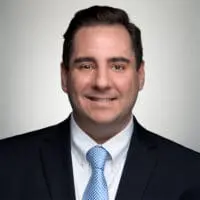Publication
Federal Preemption of State and Local Paid Sick Leave Laws
by Benjamin A. Nucci and William R. Hayden
Could a single, nationwide paid sick leave law become a reality and cure a multi-jurisdictional employer’s woes? Maybe.
One proposal, H.R. 4219 (known as the “Workflex in the 21st Century Act”), was introduced by three Republican members of the House of Representatives in late 2017. If enacted, H.R. 4219 would arguably exempt participating employers from state and local paid leave laws if they give workers one of six flexible scheduling options to qualify for the federal alternative which calls for between 12 and 20 days of “compensable leave.” The amount of paid leave would depend on the size of the employer and the tenure of the employee. Under the bill, participation by the employer would be completely voluntary.
Last Tuesday, July 24, the House Subcommittee on Health, Employment, Labor and Pensions held a hearing to examine the proposal, taking testimony from industry stakeholders. See here. However, H.R. 4219 has been criticized as an attack on the more protective State and local paid sick leave laws currently in place in many jurisdictions.
Opponents of H.R. 4219 continue to support a trio of measures that would set a federal minimum for paid sick time, guarantee workers paid time off to care for family members and let workers request reasonable adjustments to their work schedules. Introduced by Democrat Rep. Rosa DeLauro, those measures are:
- S.B. 337 – the Family And Medical Insurance Leave Act, introduced February 7, 2017. See here. The proposal would provide, among other things, workers with up to 12 weeks of partial income when they take time for their own serious health conditions, including pregnancy and childbirth recovery; the serious health condition of a child, parent, spouse or domestic partner; the birth or adoption of a child; and/or for particular military caregiving and leave purposes.
- H.R. 1516 – the Healthy Families Act, introduced March 13, 2017. See here. The proposal would allow workers in businesses with 15 or more employees to earn up to seven job-protected paid sick days each year to be used to recover from their own illnesses, access preventive care, provide care to a sick family member, seek assistance relating to domestic violence/stalking/sexual assault, or attend school meetings related to a child’s health condition or disability. Workers in businesses with fewer than 15 employees would earn up to seven job-protected unpaid sick days each year to be used for the same reasons.
- H.R. 2942 – the Schedules That Work Act, introduced June 20, 2017. See here. The proposal would guarantee workers the right to request more flexible or predictable work arrangements and, in some cases, to receive a more customized schedule.
Notably, each of the above proposals, as they currently stand, explicitly state that they do not preempt or supersede provisions of State or local law. See S.B. 337, § 5(G)(1)(“This section does not preempt or supercede any provision of State or local law that authorizes a State or local municipality to provide paid family and medical leave benefits similar to the benefits provided under this section.”); see also H.R. 1516, § 11(b) (“Nothing in this Act shall be construed to supersede (including preempting) any provision of any State or local law that provides greater paid sick time or leave rights (including greater amounts of paid sick time or leave, or greater coverage of those eligible for paid sick time or leave) than the rights established under this Act.”); see H.R. 2942, § 10 (“This Act provides minimum requirements and shall not be construed to preempt, limit, or otherwise affect the applicability of any other law, regulation, requirement, policy, or standard that provides for greater rights for employees than are required in this Act.”).
More and more jurisdictions are mandating employers provide paid sick leave creating an even greater complex patchwork of laws across the country. For example, Michigan voters will decide this fall on whether employees should be allowed to earn one hour of paid sick leave for every 30 hours worked, up to 72 hours per year. See here. Of note, this would be an additional 16 hours of leave than what is currently offered as part of the federal H.R. 1516 proposal. This patchwork of State and local regulation makes compliance for employers with operations across multiple jurisdictions administratively difficult.
While a federal requirement could solve this administrative nightmare – giving employers the peace of mind of complying with just one set of rules and regulations – that federal standard would need to expressly preempt all State and local paid sick leave regulations. Otherwise, employers would simply face yet another set of rules and regulations to comply with.
About Snell & Wilmer
Founded in 1938, Snell & Wilmer is a full-service business law firm with more than 500 attorneys practicing in 17 locations throughout the United States and in Mexico, including Los Angeles, Orange County, Palo Alto and San Diego, California; Phoenix and Tucson, Arizona; Denver, Colorado; Washington, D.C.; Boise, Idaho; Las Vegas and Reno, Nevada; Albuquerque, New Mexico; Portland, Oregon; Dallas, Texas; Salt Lake City, Utah; Seattle, Washington; and Los Cabos, Mexico. The firm represents clients ranging from large, publicly traded corporations to small businesses, individuals and entrepreneurs. For more information, visit swlaw.com.


